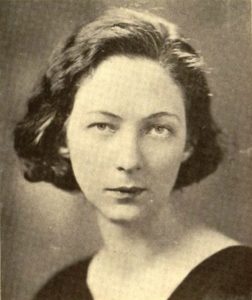
Dr. Myra Logan
*This date in 1908 is celebrated as the birth date of Myra Logan. She was a Black Surgeon and woman’s health advocate.
Myra Adele Logan was born in Tuskegee, Alabama, the daughter of Warren and Adella Hunt Logan. She was the youngest of eight children. Her mother was college-educated and involved in the suffrage and healthcare movements. Her father was treasurer and trustee of Tuskegee Institute.
She enjoyed a relatively privileged upbringing; Booker T. Washington was a neighbor. Education and optimism were in the air of the Logan household, as was an interest in health care: in addition to her mother, Logan also had an aunt and sister who were or became involved in health matters, and her brother, Arthur, as well as a brother-in-law, was a physician.
Logan's primary school education was conducted at Tuskegee's Laboratory, the Children's House. After graduating with honors from Tuskegee High School, she attended Atlanta University and graduated as valedictorian of her class in 1927. She then moved to New York and attended Columbia University, earning her M.S. degree in psychology. She worked for the YWCA in Connecticut before opting for a medical career. Logan was the first to receive a four-year $10,000 Walter Gray Crump Scholarship exclusively for aiding Black medical students to attend New York Medical College. She graduated in 1933.
She interned and did her residency in surgery at the Harlem Hospital in New York. In 1943, she became the first woman to perform open-heart surgery and the ninth operation of its kind. She developed her specialty in children's heart surgery. Logan married painter Charles Alston on April 8, 1944. They met while he was working on a mural project at the Harlem Hospital, where Logan was a medical intern; Logan served as a model for Alston's Modern Medicine, in which she appears as a nurse holding a baby.
She was a New York State Commission on Discrimination member during Governor Thomas E. Dewey's administration. In 1944, she resigned from the commission with seven other members after Dewey shelved anti-discrimination legislation they had drafted. Logan became an associate surgeon at Harlem Hospital, where she spent most of her medical career. She was also a visiting surgeon at Sydenham Hospital and maintained a private practice. She also worked to develop antibiotics, including Aureomycin. Logan and a team of physicians treated 25 lymphogranuloma venereum patients with Aureomycin, gaining positive results. Aureomycin was shown to reduce the gland size of eight Buboes patients after four days of treatment.
She published her results in the Archives of Surgery and Journal of American Medical Surgery. Logan also published her results on Puromycin and tri-ethylene melamine in the A.M.A. Archives of Internal Medicine and Acta-Unio Internationalis Contra Cancrum journals, respectively. In 1951, Logan was elected a Fellow of the American College of Surgeons and was the first Black woman to become a member of this group. Logan was a founding partner and treasurer of the Upper Manhattan Medical Group of the Health Insurance Plan, one of the first group practices in the United States. She also worked with the NAACP's Health Committee, the New York State Fair Employment Practices Committee, the National Cancer Committee, the National Medical Association Committee, and Planned Parenthood.
During the 1960s, she researched the early detection and treatment of breast cancer. She developed X-ray processes that could more accurately detect differences in tissue density, allowing tumors to be discovered earlier. She was published in several medical journals and was among the first Black women to be elected to the American College of Surgeons. Logan was also an accomplished classical pianist. She retired in 1970 and later served on the New York State Workmen's Compensation Board. Myra Logan died of lung cancer at Mount Sinai Hospital on January 13, 1977.